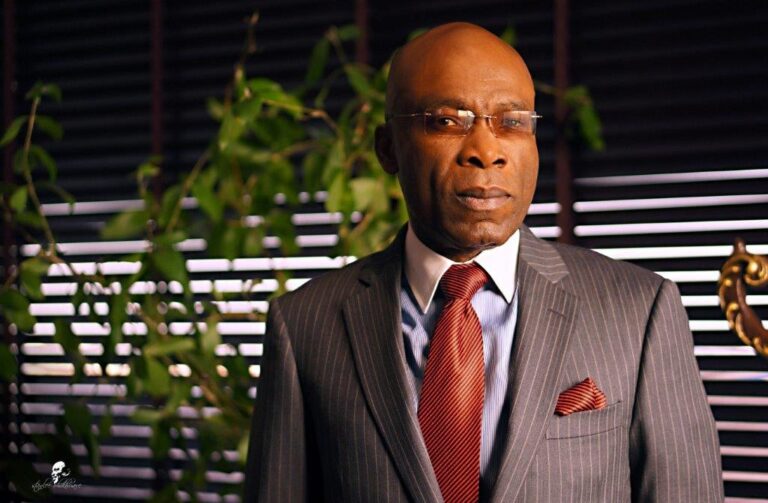This year’s France–Nigeria Investment Forum, a key event during President Bola Tinubu’s visit to France, concluded on a positive and mutually beneficial note for both nations.
For those of us who have attended previous editions, this year’s forum stands out as the best from a Nigerian perspective, largely due to the exceptional organization and the selection of accomplished Nigerian entrepreneurs who participated.
Although it was a government-to-government initiative, the forum was predominantly driven by the private sector, with experienced foreign moderators facilitating discussions. In the past, Nigerian government representatives would often showcase CEOs of companies that foreign investors found hard to connect with. However, this year, the focus shifted, and Nigeria’s leading women CEOs were introduced to the French and global investment communities, a development that spoke volumes about the growing prominence of women in leadership and entrepreneurship. I was particularly impressed by the poise and confidence of Dame (Dr.) Adaora Umeoji, CEO of Zenith Bank, Dr. Owen Omogiafor, and Jumoke Oduwole, the Honourable Minister of Industry, Trade, and Investment. This is a positive reflection of the Tinubu administration’s support for women in business, aligning with global trends where women are increasingly excelling in the business world.
What stood out most to me, as a Nigerian property investor based in the UK, was the presentation by Dr. Leo Stan Ekeh, Chairman of Zinox and Konga Group. His address offered a unique and insightful perspective on Nigeria’s tech capacity to support foreign investments. He spoke with great conviction, assuring investors of Nigeria’s wealth of world-class IT professionals ready to support their ventures. Dr. Ekeh passionately encouraged French investors to explore opportunities in Nigeria’s educational sector, urging partnerships with Nigerian institutions to cultivate globally competitive graduates.
His personal example of how his companies have worked with French tech firms in Nigeria for over 30 years further demonstrated the potential of Nigerian businesses to serve as a bridge for international collaboration. The impact of Dr. Ekeh’s presentation was palpable in the room; you could see how his confidence and bold vision resonated with both foreign and Nigerian audiences. I am certain there are many more Nigerian companies like Zinox and Konga that have yet to be fully recognized on the global stage.
Though I wasn’t able to speak with him personally due to the many people engaging him after his presentation, I took the opportunity to research Dr. Ekeh on Google. His profile revealed an inspiring journey, showcasing his pioneering role in Africa’s tech landscape. One particularly striking story was how his frustration with being cheated at a petrol station led him to spearhead the transition from analogue to digital fuel dispensing systems in Nigeria. His resilience and ability to overcome challenges, even after losing $28 million in a failed AI and Robotics investment, further illustrate his determination and unwavering belief in the potential of Nigerian innovation.
As I reflected on my return journey to the UK, I thought about the vast opportunities that exist in Nigeria. While figures like Elon Musk, the world’s richest man with African roots, have made their fortunes outside the continent, I firmly believe Musk’s success would not have been as great had he stayed in Africa. Dr. Ekeh’s challenges in navigating Nigeria’s limited economy, with its structural issues and infrastructural deficits, are a testament to the obstacles faced by homegrown entrepreneurs. However, his success against these odds is a powerful reminder of Nigeria’s potential.
The young Minister of Technology and Digital Economy, Dr. Bosun Tijani, should be supported to cultivate more leaders like Dr. Ekeh to secure Nigeria’s future. Ekeh shared how, over 37 years ago, he returned to Nigeria with a vision to launch ‘Digital Democracy,’ aiming to digitalize the nation’s electoral processes. His efforts in pushing for a digital census to guide national planning and investment were equally notable. While his vision for digital elections has largely been realized, Nigeria’s trust in its economy remains a work in progress, given that key sectors like oil and gas, cement, and infrastructure are still under heavy government control.
Technology is the present and the future, and the Nigerian government must actively support and nurture indigenous tech players to ensure they remain globally competitive. I take immense pride in Dr. Ekeh’s achievements as a serial tech entrepreneur, and his work continues to inspire confidence in Nigeria’s vast potential. However, the coming years will be crucial in determining whether the progress he’s made can be sustained and scaled for future success.


